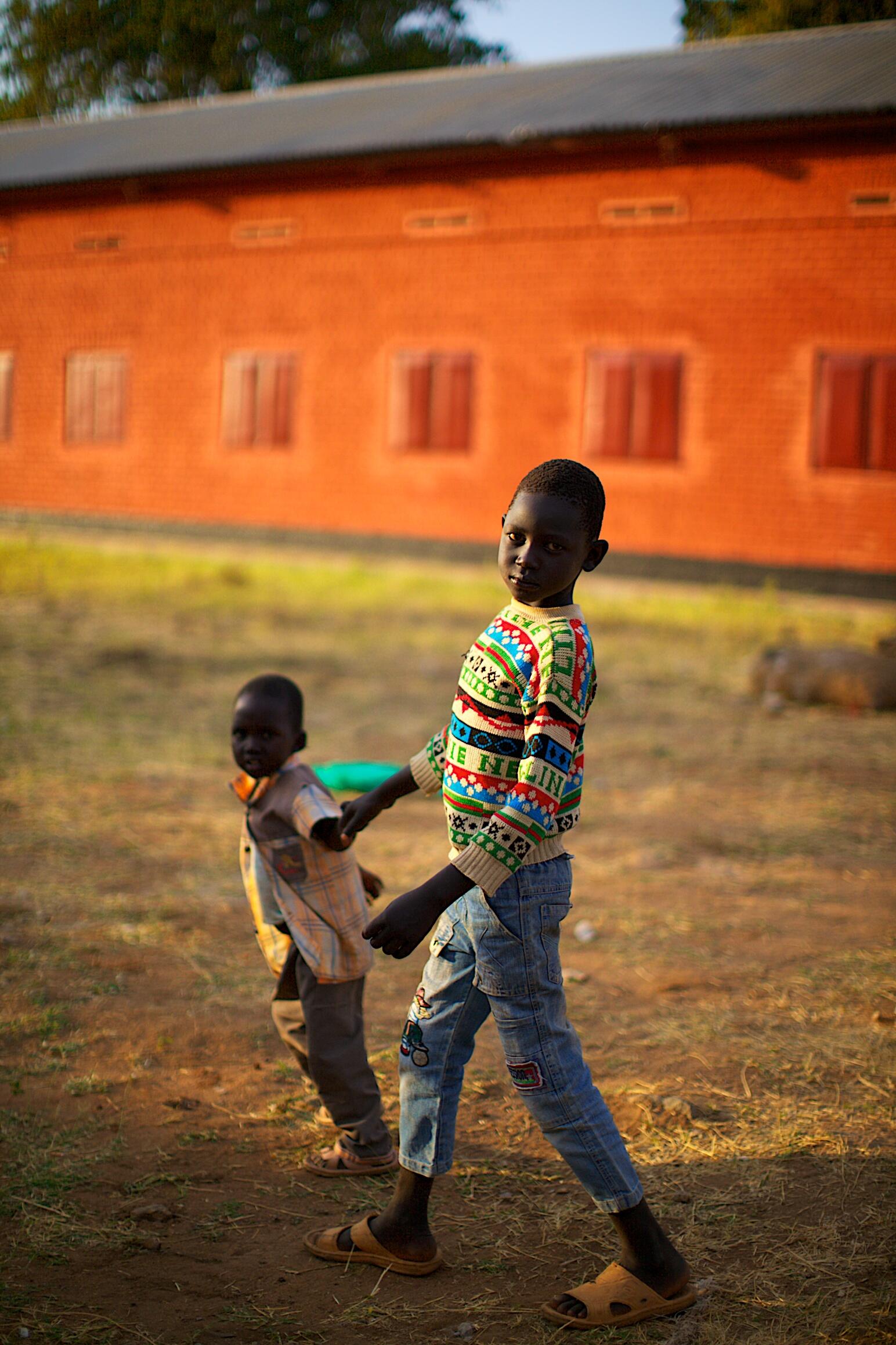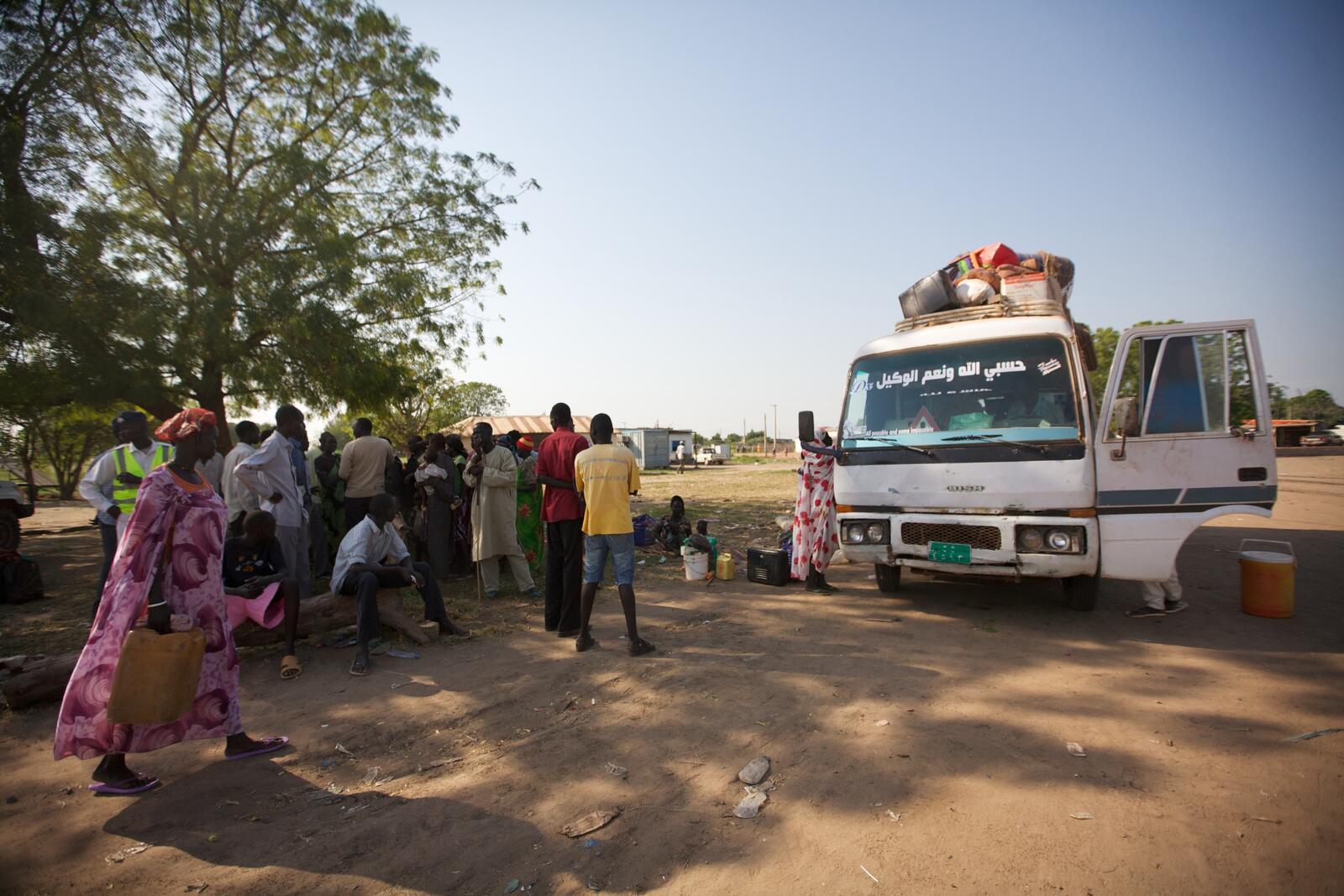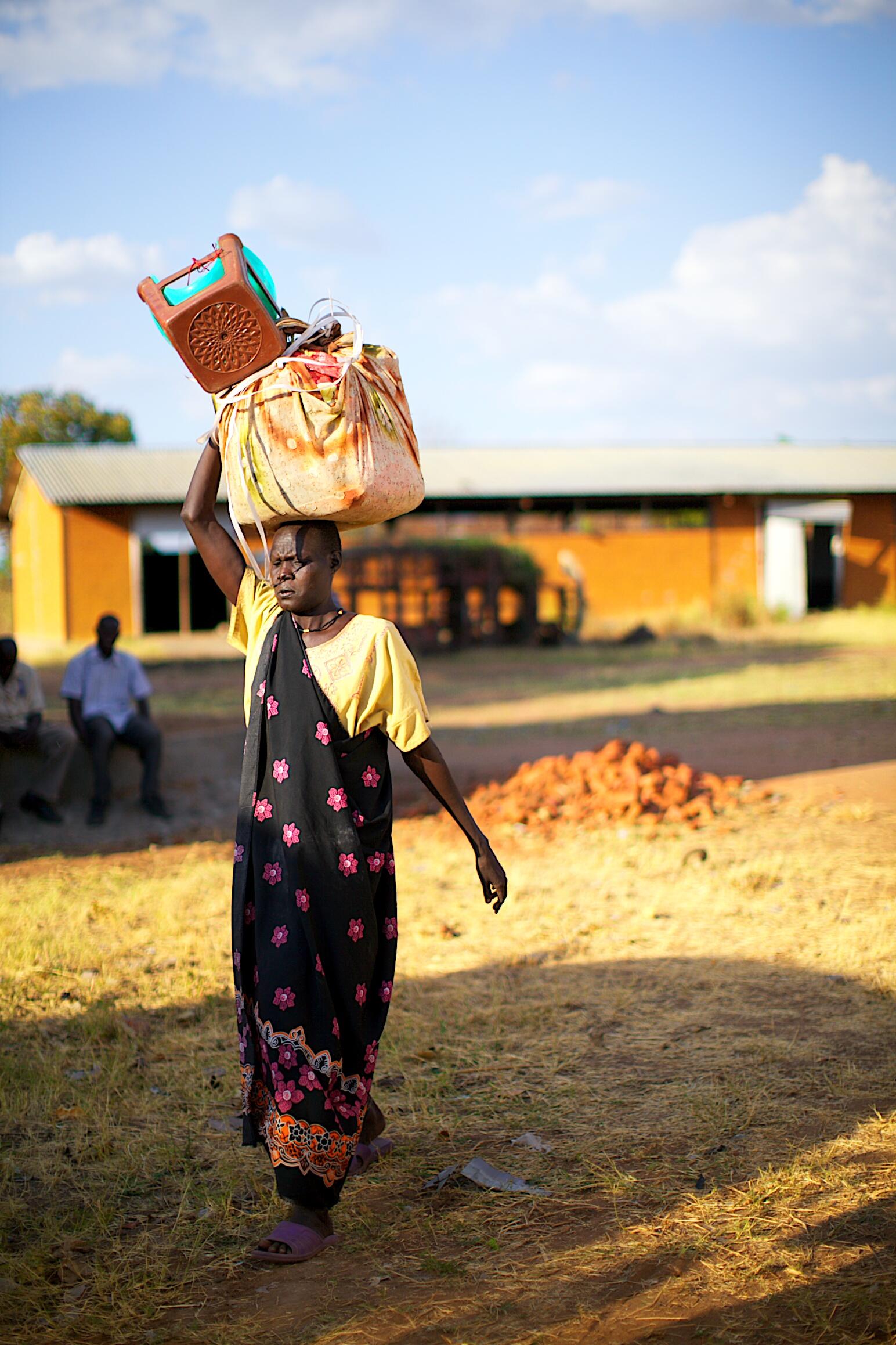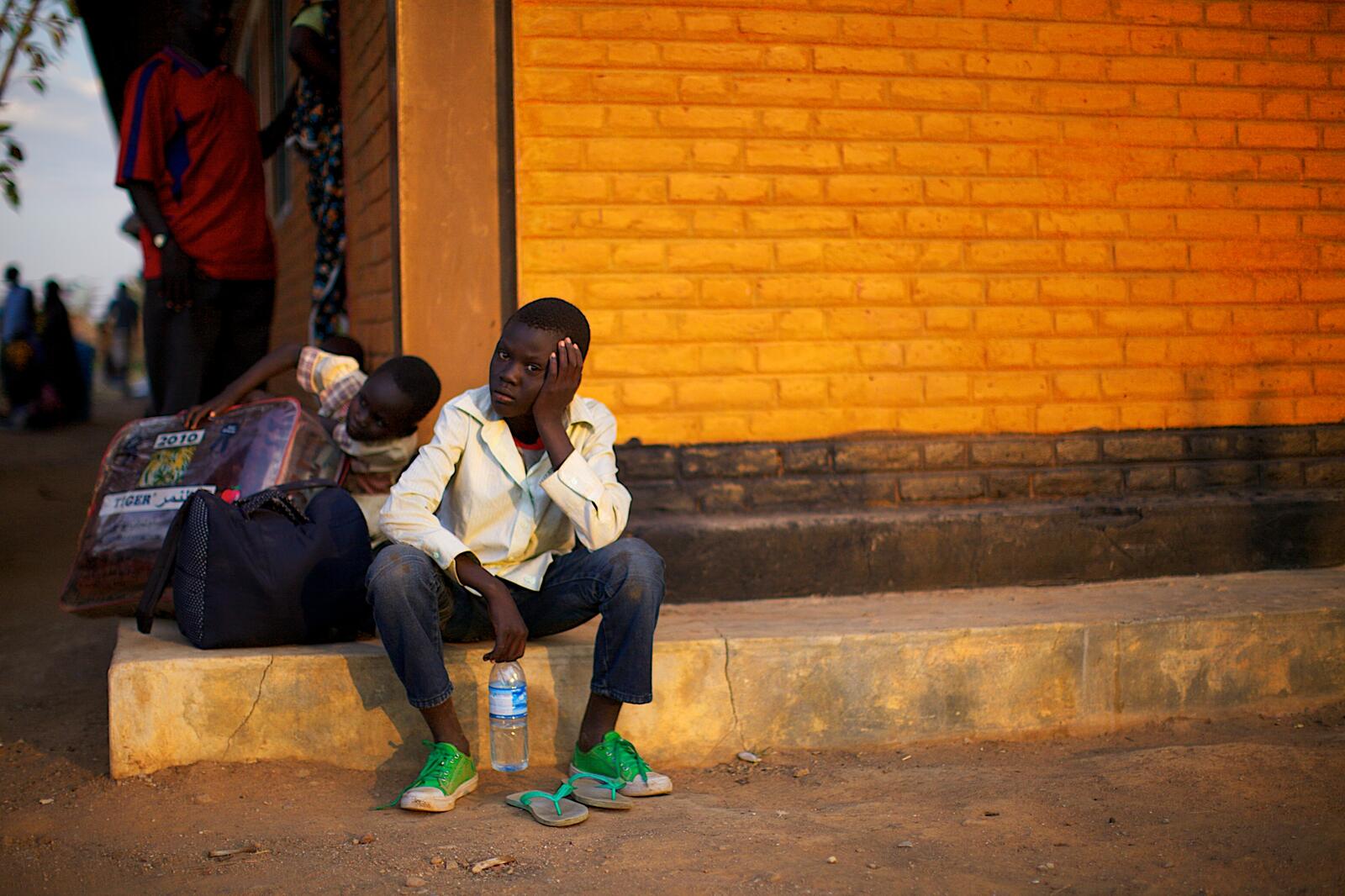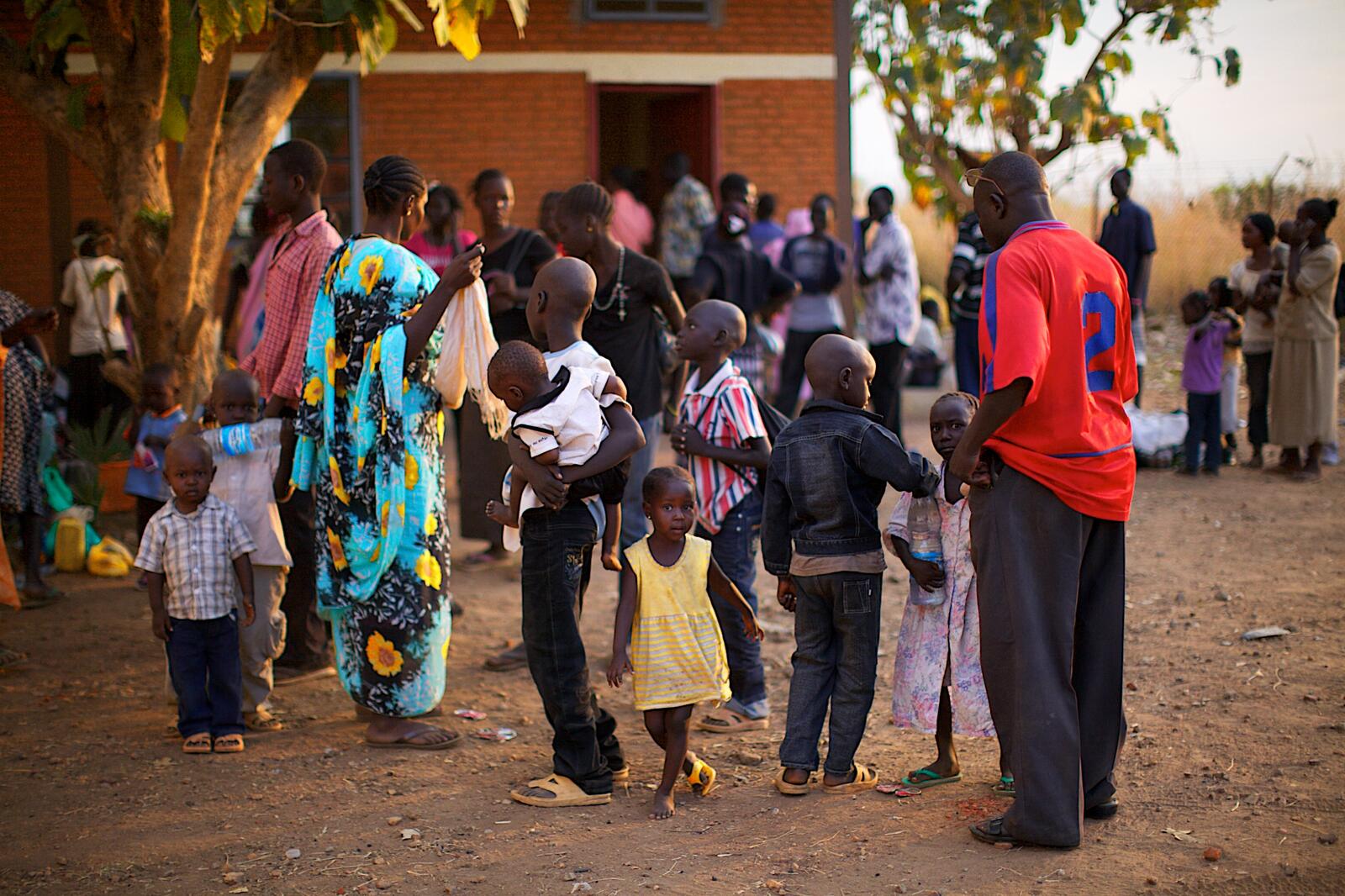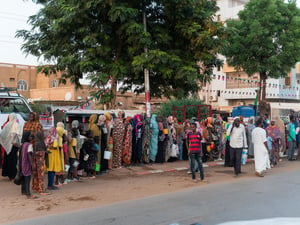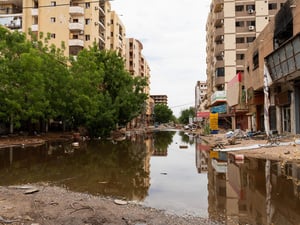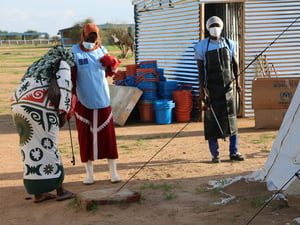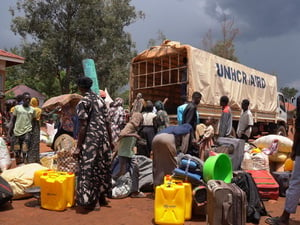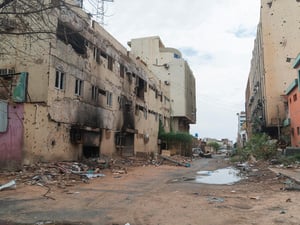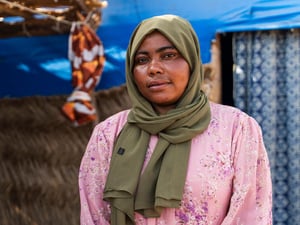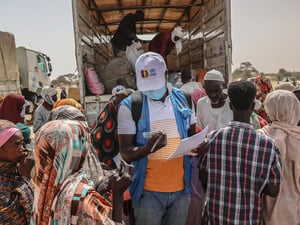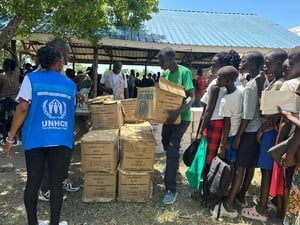Number of Sudanese heading south ahead of referendum tops 120,000
Number of Sudanese heading south ahead of referendum tops 120,000

A mother and child in Malakal. People have come with everything they own, including mattresses, sofas, chairs, tables, cooking utensils, corrugated iron sheeting, radios, TV sets, fridges and small generators and cuddly toys.
JUBA, Sudan, January 7 (UNHCR) - The number of people who have left northern Sudan and headed for their ancestral homes in South Sudan ahead of Sunday's key referendum on independence has passed the 120,000 mark.
The UN refugee agency is providing assistance to some 35,000 returnees in and around the town of Abyei on the border between the two regions and has sufficient stocks in South Sudan to assist a further 100,000 people.
An average of 2,000 people are crossing into South Sudan every day, according to a UNHCR official. "We anticipate that many more will return in the coming months following the referendum," he said, adding: "Many of the returnees who have lived in the North for years say they have left for fear of the unknown and the opportunity to start afresh in their native South."
Following the referendum, it will be essential that the status of those southern Sudanese who would prefer to remain in northern Sudan is established. An estimated 1.5-2 million southerners live in northern areas.
"We are concerned about the spectre of a significant number of southerners in the north having uncertain citizen status, possibly becoming stateless. We are actively supporting negotiations with officials to address this issue," the UNHCR official said.
Most of the 120,000 returnees have been living in the Khartoum area, some of them for two generations. As a result they do not necessarily have a home village to return to, but having lived in an urban environment they are settling in South Sudan's towns and cities.
This puts additional pressure on the fragile infrastructure of urban areas in the south and has prompted UNHCR to focus its attention on these urban returns, especially Abyei.
Upper Nile state is among the southern regions that have received a high number of returnees. Every day, buses and barges with returnees arrive in the state capital, Malakal. They have come with everything they own, including beds, mattresses, sofas, chairs, tables, cooking utensils, corrugated iron sheeting, radios, TV sets, fridges and small generators.
In Malakal, they are registered and provided with reintegration packages by the state authorities before moving on to their ancestral villages.
Mathew Gatkugth, a 45-year-old builder, arrived in the town on Thursday with his four children after living in northern Sudan for more than 20 years. "The war is over and freedom is coming, so there is no need for us to stay in Khartoum", he said. "I will find a job as a builder and earn enough to support my family," he added.
Another returnee, Mary Samuel, came back with 19 members of her extended family a quarter of a century after heading north to Khartoum. She and her family speak Arabic and will have to adjust to a new culture and language.
"The situation [in the north] was always very difficult for us southerners. The police were constantly after us, harassing us and at times destroying our shelters," claimed Mary, who stopped in Malakal en route to her home village in the neighbouring state of Jonglei.
The journey south was only possible because the authorities in South Sudan had covered the costs of transport and promised to provide a reintegration package, she said, adding: "In Khartoum, I was an unwelcome foreigner. Here I am back in my own country, where I can live with dignity as a free person."
In recent weeks, UNHCR has established a presence in the 10 states of South Sudan to support returnees and the local community. The refugee agency also set up five way stations and a number of soup kitchens along the route to the principal areas of return. These way stations are providing a safe place for women, children and the elderly to rest as they make the arduous journey home.
UNHCR's community services and protection specialists in the region are monitoring and following up on cases of people who need support, including unaccompanied and separated children, victims of gender-based violence, the elderly and people living with disabilities.
By Yusuf Hassan in Juba, Sudan

